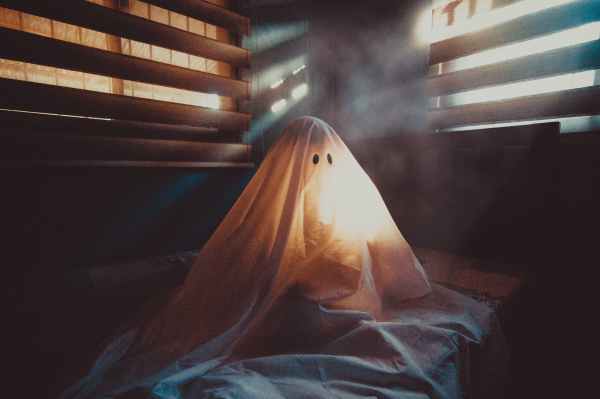An altered version of this post was published in my anecdotal memoir/anthology, The Intensity of Silence.
J flinched the second she saw me standing by her desk. I was awaiting more work, something I seemed to always be doing at my on-campus job. I never worked more than three hours a day due to conflicting schedules and yet, I remember constantly watching the clock, begging the three hours to end. I liked this job for the most part, although there were times when it grew incredibly mundane. I was a freshman in college (age 18; 2014) and honestly, all I wanted to do was go back to my dorm and chill out.
“You scared me,” J said, holding her hand to her heart. It was a daily occurrence between us as I often would stand silently by her desk without announcing my presence. I tried to scuff my shoes on the carpet as I walked toward her to make some kind of noise that would alert her of my approach, but it didn’t usually work. She’d spend seconds of her day trying to convince me to say something when I needed her attention instead of standing there silently like a ghost.
I always felt that way, I suppose. Like a ghost, that is. I try not to think about it too much now, but I was obsessed with the idea when I was a young teenager in junior high (ages 13-14; 2009-2010). I liked describing myself that way, but unfortunately, the idea fueled a strong sense of loneliness, and I ended up falling into a bout of depression.
“We need to tie a bell around your neck,” M joked in the seventh grade (2008-09) as we walked with our friends down one of the junior high hallways. She was comparing me to a cat—the ones who had collars with bells on them. It probably seemed like a genius idea to her and our friends, but it took me a few seconds to catch on to what she was saying. My quietness made me unintentionally stealthy. They’d often not hear me coming or forget I was there altogether.
“You’re so quiet, I forgot there was someone back there,” my grandparents said a few times as I sat in the back of their car. I was younger then, but it was always the same. I lived life much like a ghost—silent, partially invisible, and seeming to appear out of nowhere.
For a semester in eighth grade (2010), it became somewhat of a game to me. I tried to master the art of invisibility, taking note of all the things I did or said that would go unnoticed. For weeks, I would walk around in a near-zombified state as my mental list of invisible achievements racked up. I’d say things to friends who were clearly not listening and I’d stop abruptly mid-sentence to test their lack of notice. At first, being ghost-like felt like a superpower. It wasn’t long until it felt more like a heavy burden, loneliness creeping up on me from all angles. By the end of the school year, I’d convinced myself that nobody cared. My presence didn’t seem to be making a difference in anyone’s lives.
There’s an episode of 7th Heaven (1996-2007) that aired a few days before my first birthday in which Simon tries to harness the power of “Ninja Mind Control” to make himself invisible. He’s excited at first when his older brother, Matt, bumps into him, claiming he didn’t see him. However, he’s continually upset throughout the episode when others notice his presence. He even goes as far as to blame the dog for following him around. In a scene that’s almost halfway through the episode, Simon seems to appear out of nowhere, angering his sister Lucy, who hadn’t known he was there to eavesdrop on a conversation. While that’s a handy little trick one discovers when virtually invisible—overhearing all kinds of gossip—that’s not the point I want to make. When Lucy tries out for cheerleading and the entire family attends for support, their family is surprised to discover that Lucy is actually really good at cheering. Simon ends up making the following comment—
Maybe the cheerleading Lucy was invisible because all we could see was the regular Lucy.
Simon Camden (David Gallagher, 7th Heaven, 1996)
I’d become so invisible in my life, my selective mutism often hiding all kinds of personality traits from view. Most people only saw the quiet version of me. I was like a ghost, hovering in and out of realms or planes of existence. Admittedly, I am still that way sometimes. My selective mutism is seen more than I am seen. It was difficult for me to get to know myself as I stayed under the white sheet that was my disorder. It took a long time for me to figure out who I was—to learn that I wasn’t exactly the quiet, invisible girl that I and others often saw. I didn’t have to be a ghost. In fact, I wasn’t a ghost, no matter what my feelings were about it. I wasn’t as invisible as I felt.
